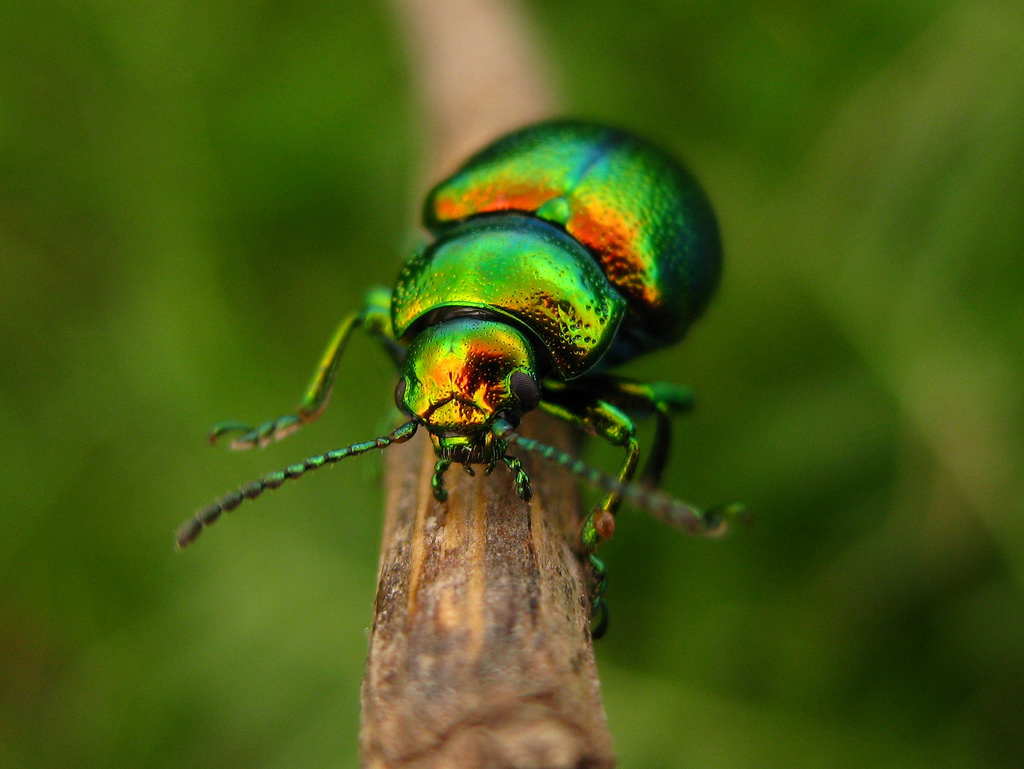Warming climate shrinks B.C. beetles
January 30, 2018

January 30, 2018

Some of B.C.’s beetles are shrinking as their habitats get warmer, according to new UBC research. The study provides evidence that climate change is affecting the size of organisms.
“In nature, there is so much going on that can affect body size so we weren’t sure we were going to see anything,” said Michelle Tseng, assistant professor of botany and zoology at UBC who oversaw the research. “This research provides evidence that climate change is affecting even the smallest organisms out there.”
Scientists expect living organisms to respond to climate change in three ways – by moving to new regions, changing the timing of their life stages or shrinking. To date, most of the evidence for organisms shrinking has come from laboratory work where the environment and living conditions can be tightly controlled. Tseng asked students in her fourth-year class to look into whether this is happening by examining beetle specimens in UBC’s Beaty Biodiversity Museum collection, as well as historical weather data.
Assisted by curators at the Beaty, students selected eight species of beetles from the Lower Mainland and Okanagan for their data set. They photographed more than 6,500 beetles and inputted information about each insect, when it was collected and where it was found into a database.
“We got data from 100 years of caught specimens,” said Sina Soleimani, one of the students who co-authored the paper and is now pursuing a doctor of pharmacy at UBC. “It’s cool that people have been collecting these insects since 1910 and noting all of their collection information. That’s probably what makes our paper stand out.”
The students measured whether the beetles had changed in size in the last 40 or 100 years. The students then used a climate database from the faculty of forestry to gather data about changes in the environment for the two regions where the beetles lived. They found that the Lower Mainland has seen a 1.6 C increase in autumn temperatures and the Okanagan has seen a 2.25 C increase in autumn temperatures over the last 45 years.
At first, the data didn’t indicate a clear trend – some beetles were shrinking, some were not. But by taking a closer look, they found that it was the larger beetles that were shrinking, while the smaller ones were not. The four largest species of beetles shrunk 20 per cent in the last 45 years.
“When these organisms were collected, I don’t think anyone ever thought that they were collecting them so we could monitor how they are changing,” said Tseng. “Museum collections contain more biodiversity now than will ever be collected again. It’s incredible that the diversity of collections in museums can help us understand and predict how organisms might change in the future.”
The students collected the data as part of their class assignment but to assemble all the information into one research paper took some extra work. Nine students continued to work on the project well after the class was over and they had graduated from UBC.
“This is my first paper that I’m publishing and it’s one-and-a-half years after the class ended,” said Katrina Kaur, who is now completing a master’s degree at the University of Toronto and returning to UBC in the new year to start a PhD. “It was a valuable experience as an undergraduate student. It was tough but I’m glad I stayed involved and saw it through.”
The study was published today in the Journal of Animal Ecology: http://onlinelibrary.wiley.com/doi/10.1111/1365-2656.12789/full
We honour xwməθkwəy̓ əm (Musqueam) on whose ancestral, unceded territory UBC Vancouver is situated. UBC Science is committed to building meaningful relationships with Indigenous peoples so we can advance Reconciliation and ensure traditional ways of knowing enrich our teaching and research.
Learn more: Musqueam First Nation